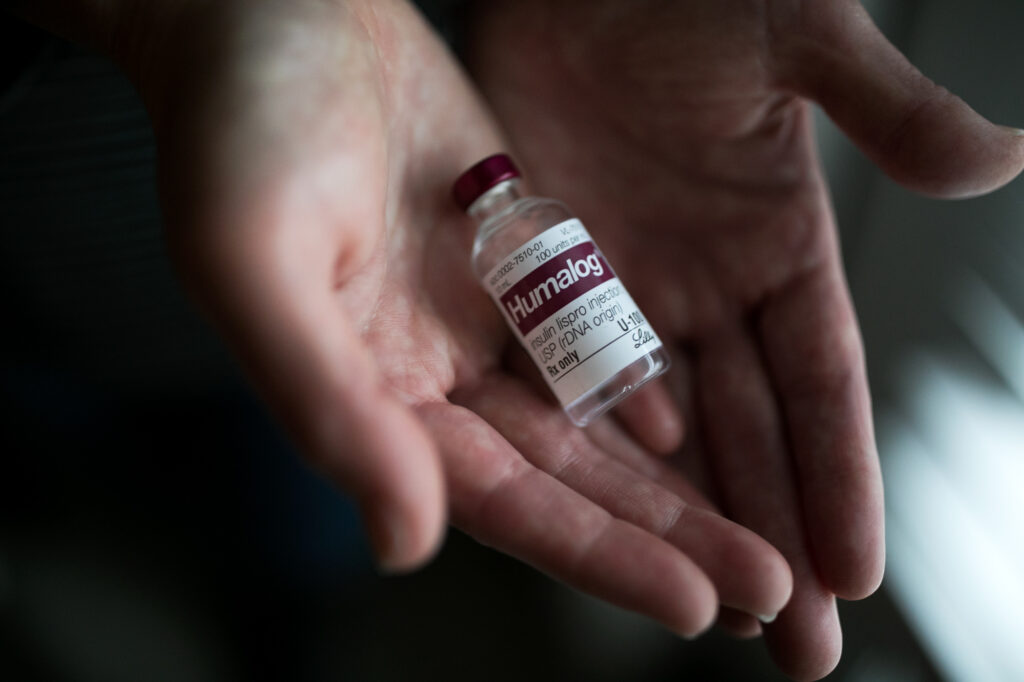The West Virginia Legislature once again took up the issue of insulin costs with legislation passing the House to cap insulin co-pays for patients at $35 for a 30-day supply.
House Health Committee Chair Del. Amy Summers, R-Taylor, said the bill addresses the high cost of treating diabetes in the state, which has a high rate of the disease.
“This bill addresses insulin because we have a very high diabetic population in West Virginia that is costing a lot of money to treat those people,” Summers said. “So we want to be able to allow them to get the medicine they need at a reasonable price and keep their disease process under control.”
Senate Bill 577 aims to reduce the co-pay cap on insulin and devices and permit the purchase of testing equipment without a prescription. It faced debate on the House floor from legislators arguing for a free market, though drug maker Eli Lilly voluntarily capped the insulin it makes at $35. The federal Inflation Reduction Act last year capped insulin at $35 for Medicare recipients.
Among over 20 delegates who rose to speak to the bill, was Del. Laura Kimble, R-Harrison, who questioned Summers about including other life-saving medications in the bill.
“The reason for me voting red on this bill was quite simple. All we’re doing is cost-shifting for private insurance companies. Private insurance, we’ll see a cap. It’s true, they’ll go from $100 to $35. But someone else will be paying the difference,” Kimble said. “That will be shifted, there will be people, there will be a butterfly effect for some and there will be a Tyrannosaurus Rex effect for others. Whether through increases in premiums, medicines, employers, for employers or employees, someone will be asked to pay more. Nothing comes without a price.”
The debate continued with Democratic colleagues, Dels. Shawn Fluharty, D-Ohio, and Ric Griffith, D-Wayne both rising to speak in passionate support of Senate Bill 577.
“Imagine being from West Virginia, and arguing that big pharma needs more money,” Fluharty said. “What are we doing? I can’t believe people are standing up on this House floor and arguing that big pharma needs more money.”
“Every day across our state. People who need medications make very tough decisions,” Griffith said. “We often hear the comparison of do I buy food? Or do I buy my medicine? Well, one of the things I think you need to realize is the insurance companies and the pharmacies across this country are doing very well. Very well. Indeed.”
Del. Adam Vance, R-Wyoming, asked some questions on the House floor and then spoke in support of Senate Bill 577 calling it a win for West Virginians.
“I know what everybody’s wanting to do, and I get it from both sides and all that. But to me, this is just a win. I mean, if they can raise the premiums without capping it, your money is gonna go up anyway – people will go off of it anyway. But if we can help out somebody, and I know, we want to help everybody, and maybe we can work on that later. But if we can help out somebody now, and if the premiums go up, they go up, but they can go up even without doing,” Vance said. “And I hate to speak against some of my friends and colleagues. But I’m going to support this bill just for the simple fact that there’s no guarantee that the rates don’t rise without doing it. So if we can help out one group doing it, we might as well do it.”
Before a vote was called, Summers said it’s time that lawmakers consider what’s best for the people of the state and help them as they need.
“I’ve listened to all the debate here today. And I understand this is a policy decision. I used to be a purist as well, where no price controls, that’s not the Republican thing to do. That’s not the capitalist thing to do,” Summers said. “But over the years, I’ve softened a bit as I’ve thought through how do these government policies, how do these companies, these drug companies, these insurance companies, how do they impact the citizens in my district, the citizens in West Virginia, drug companies and insurance companies I feel may be taking advantage of our people.”
Senate Bill 577 passed the House of Delegates with 85 yes votes, 12 no votes and 3 not voting or absent. It now returns to the Senate to review its House amendments.




















